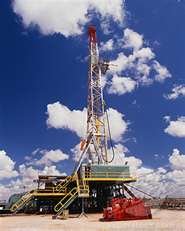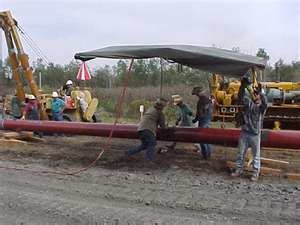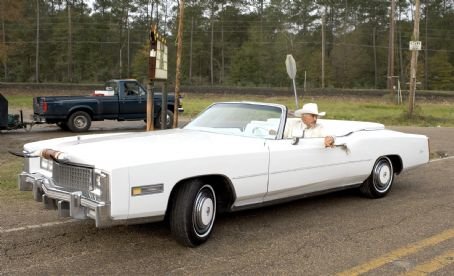Navigation
Install the app
How to install the app on iOS
Follow along with the video below to see how to install our site as a web app on your home screen.
Note: This feature may not be available in some browsers.
More options
You are using an out of date browser. It may not display this or other websites correctly.
You should upgrade or use an alternative browser.
You should upgrade or use an alternative browser.
Drill Baby, Drill
- Thread starter Ben Lamb
- Start date
Carrion Carrier
Member
Thanks for fighting the good fight Ben. I really enjoyed your commentary on MTPR tonight. Spot on.
TransCanada is just the shipper, Exxon/Mobil, BP, CoP, etc are the producers. TransCanada just provides a open-season bid process to sell delivery rights to the highest bidders. Usually, consists of multiple oil companies shipping through the same pipeline. Refining is the issue, we haven't building any new refineries in the last couple decades and that is the reason most of the oil is going to IL; to either Pakota and/or the Wood River refineries. TransCanada, Embridge, and many others have pipelines all over MT. It's turned back over the original oil companies or new buyers at the port/refinery, which they can ship overseas to China.
Through the various state commerce commissions TransCanada pays taxes to operate their pipeline through these county's and states, which goes to state coffers for road building, schools, etc. Bonds could provide a insurance policy if something goes haywire with the system to compensate landowners of the affected area. Instead of just buying right of way access and damages across the landowners property.
Anyone that has any plastic, drives a auto, operates a computer, eats food, or enjoys the life we have has little room to bitch at oil companies. As Ben L. said it's the consultants that drive the system to be problematic and the futile attempt to save a dollar. These bad oil companies provide lots of money to various conservation groups, such as RMEF, DU, TU. EnCana still allows hunting on select properties in western CO.
Through the various state commerce commissions TransCanada pays taxes to operate their pipeline through these county's and states, which goes to state coffers for road building, schools, etc. Bonds could provide a insurance policy if something goes haywire with the system to compensate landowners of the affected area. Instead of just buying right of way access and damages across the landowners property.
Anyone that has any plastic, drives a auto, operates a computer, eats food, or enjoys the life we have has little room to bitch at oil companies. As Ben L. said it's the consultants that drive the system to be problematic and the futile attempt to save a dollar. These bad oil companies provide lots of money to various conservation groups, such as RMEF, DU, TU. EnCana still allows hunting on select properties in western CO.
Maybe I'm naive on this...but I can't seem to figure a few things out. Why doesn't Transcanada put a pipeline across their country (Canada) to a port? Then why don't they save the money and build their own refinery? Could it be they have too many environmental regulations and deem their country's environment too important? They would rather send the oil a few thousand miles to TX where they can get it refined in a Trade Free Zone.
I realize oil is very important but this pipeline has no real positive effect on the US. It won't help gas prices, oil supply, jobs, etc. in the US so why would the US take any greater risk to the environment by allowing it through?
WV Hunter- here's a link to the source of the article...under the article is a pretty good discussion of parts of that article. switchboard.nrdc.org/blogs/aswift/keystone_xl_is_a_tar_sands_pip.html
I realize oil is very important but this pipeline has no real positive effect on the US. It won't help gas prices, oil supply, jobs, etc. in the US so why would the US take any greater risk to the environment by allowing it through?
WV Hunter- here's a link to the source of the article...under the article is a pretty good discussion of parts of that article. switchboard.nrdc.org/blogs/aswift/keystone_xl_is_a_tar_sands_pip.html
WV Hunter
Active member
- Joined
- Oct 6, 2009
- Messages
- 1,761
Maybe I'm naive on this...but I can't seem to figure a few things out. Why doesn't Transcanada put a pipeline across their country (Canada) to a port? Then why don't they save the money and build their own refinery? Could it be they have too many environmental regulations and deem their country's environment too important? They would rather send the oil a few thousand miles to TX where they can get it refined in a Trade Free Zone.
I realize oil is very important but this pipeline has no real positive effect on the US. It won't help gas prices, oil supply, jobs, etc. in the US so why would the US take any greater risk to the environment by allowing it through?
WV Hunter- here's a link to the source of the article...under the article is a pretty good discussion of parts of that article. switchboard.nrdc.org/blogs/aswift/keystone_xl_is_a_tar_sands_pip.html
Thanks for the link Matt
sagebrush
Active member
I disagree that Canadian oil will have no effect on the US economy. I would rather we buy oil from Canada than the middle east, but if we can't get our act together the Canadians will sell their oil elsewhere. Oil coming out of the ground and going to refineries will increase worldwide gasoline supply. Additional gasoline will not stimulate additional consumption, it will drive down the worldwide price. If China increases consumption by the amount of oil produced with tar sands, that consumption will happen regardless of supply and simply drive up the price. I'm not planning on driving more because gasoline prices come down, are you? If China buys gasoline from Canadian sources, they will buy less from others. More supply means lower prices for everyone.
I found this quote and it seems to answer the question on global markets of oil and the proposed pipeline.
You make a good point. Usually, the global nature of the oil market means that it really doesn't matter where you get your oil, you will pay the international price for it. That's why simply switching suppliers isn't the safe haven that one might expect it to be.
However, this case is different for two reasons. First, Keystone XL won't increase global oil supply. There is no extra production waiting to be put oni it - it's actually taking oil currently moving on pipelines to the US Midwest and taking it to the Gulf.
Second, the lack of extra pipelines connecting the Midwest market to the Gulf/International market has actually caused crude to sell at a discount within the United States. North American West Texas Intermediate (WTI) has historically been slightly more expensive that North Sea Brent crude. Because there is so much oil in the central US, WTI is actually cheaper than Brent (it's about $10 cheaper now; but was as much as $27 cheaper in October). Connecting that oil in the Midwest to the international market won't increase global oil supply - but it will increase supply available to international buyers while decreasing oil available to US buyers... so you would expect to see a significant increase in cost in the US oil market with a smaller decrease in cost for the international oil market, as the regional price disparity equalizes. A morally neutral market reaction... the problem is that Keystone XL is being presented as something that will increase US supply and decrease US prices when the opposite will happen.
sweetnectar
New member
I think it is important to note that just because there is more crude or less crude available doesn't mean we will see a big difference at the pump. Everything along the supply chain must be considered. ie. refining costs, piping costs, oil tanker costs, value of the dollar, trucking costs, all the way down to the 7-11 employee and everything in between. Look at were the bottle neck lies because it will have more impact on the final price at the pump than the other factors.
I think it is important to note that just because there is more crude or less crude available doesn't mean we will see a big difference at the pump. Everything along the supply chain must be considered. ie. refining costs, piping costs, oil tanker costs, value of the dollar, trucking costs, all the way down to the 7-11 employee and everything in between. Look at were the bottle neck lies because it will have more impact on the final price at the pump than the other factors.
Agreed, but add in the increased cost of exploration and development due to few new easy plays, and it's clear that oil prices aren't going to come down, even if we eliminate all regulation on the industry.
Oil Shale, for example, is only profitable when heavily subsidized, and then oil still has to be over $100/bbl.
No such thing as cheap gas.
WV Hunter
Active member
- Joined
- Oct 6, 2009
- Messages
- 1,761
I read this on another forum that was debating gas pricing, not the pipeline, seems to make pretty good sense but I'm sure one of you guys can refute it:
oil is traded on the commodities and futures market. A gallon of gas has been bought and sold something like an average of six times
before it gets to the local gas station. Each time, someone probably made a profit.
If an enterprising oil company that was fully privately owned and operated, and had its own privately owned wells, refineries, and distribution network,
were to choose to do so, they could pump, refine, and deliver fuel to the local gas station without ever putting a drop of that gas into
the futures and commodities markets. And the cost at the pump would be a THIRD of what you pay now, and the oil company would
make a profit.
But no oil company is doing that. The potential for profit by putting the product on the futures and commodities markets is much greater
than the simple model described above.
It's trading in futures and commodities contracts that jacks the price up, for the most part.
Lawnboy
Well-known member
I guess I always assumed that if we drilled here and now it would directly help the US. I admit I don't know much about the pipeline issue but like I said I figured it could only help us in America. Well after reading this arcticle I feel a bit decieved.
How is it that we are told we are paying higher prices because of threats and shortages coming from the middle east and yet the oil that is being gathered here is being shipped overseas I'm sorry but I'm not for raping the wilderness especially if we aren't going to use it for our countries benefit. Seems this pipeline will create a few jobs but do nothing to help our overall economy by reducing fuel prices. I'm pretty sure that if consumers are spending less on fuel and begin to save and have extra they in turn will have confidence to spend again. If we create these oil wells and pipelines and ship it overseas you only benefit those working on the rigs and make the oil owners even richer. Am I missing something here?
I'm sorry but I'm not for raping the wilderness especially if we aren't going to use it for our countries benefit. Seems this pipeline will create a few jobs but do nothing to help our overall economy by reducing fuel prices. I'm pretty sure that if consumers are spending less on fuel and begin to save and have extra they in turn will have confidence to spend again. If we create these oil wells and pipelines and ship it overseas you only benefit those working on the rigs and make the oil owners even richer. Am I missing something here?
Here's the article. http://news.yahoo.com/gas-prices-rise-us-oil-industry-stop-exporting-172600312.html
How is it that we are told we are paying higher prices because of threats and shortages coming from the middle east and yet the oil that is being gathered here is being shipped overseas
Here's the article. http://news.yahoo.com/gas-prices-rise-us-oil-industry-stop-exporting-172600312.html
noharleyyet
Well-known member
oil is traded on the commodities and futures market. A gallon of gas has been bought and sold something like an average of six times
before it gets to the local gas station. Each time, someone probably made a profit.
If an enterprising oil company that was fully privately owned and operated, and had its own privately owned wells, refineries, and distribution network,
were to choose to do so, they could pump, refine, and deliver fuel to the local gas station without ever putting a drop of that gas into
the futures and commodities markets. And the cost at the pump would be a THIRD of what you pay now, and the oil company would
make a profit.
But no oil company is doing that. The potential for profit by putting the product on the futures and commodities markets is much greater
than the simple model described above.
It's trading in futures and commodities contracts that jacks the price up, for the most part.
...but Pelosi and ilk said high petrol prices were directly attributable to Bush and cronies.
...but Pelosi and ilk said high petrol prices were directly attributable to Bush and cronies.
Like Boehner and ilk say that the Obama's policies are responsible.
They're politicians. They lie.
noharleyyet
Well-known member
Like Boehner and ilk say that the Obama's policies are responsible.
They're politicians. They lie.
...no actually only the evil compassionate conservative lies....means to an altruistic lib's end at the expense of verity is acceptable.
Last edited:
...no actually only the evil compassionate conservative lies....means to an altruistic lib's end at the expense of verity is acceptable.
I knew it - you're a commie.
DRAFTSTUD
Well-known member
Yeah, What Ken said! John
shoots-straight
Well-known member
Ken's playing at a different level I think. 
Nemont
Well-known member
Everyone whining about our refined products being shipped offshore to the highest bidder should stop and check to see what that is doing for our balance of trade. Without the export of refined products we would really be in a trade imbalance.
Oil is fungible good as is gasoline, diesel and other petro distallates. By bringing an increased volume of crude to the market via any means has at least a stabilizing effect on the supply. There are some big Geo-Political prices to be paid for all the saber rattling with Iran and the continued unrest in the Middle East, including Libya which was supposedly "won".
Keystone XL pipeline is going to be built, period. If Obama wins it will get permitted shortly after he is sworn in, if a Republican wins it will get permitted on the day he is sworn in. Anybody who doesn't understand that is simply not paying attention. The aquifer arguement is a smoke screen to slow the pipeline down so that the President can tell his friends in the green movement that he is trying to stop our dependence on oil at least for a few months.
That pipeline is going to cross my county and is expected to produce $18.7 million in new tax revenue, The Pipeline will cross my inlaws ranch as well, regardless of all the whining and complaining about this pipeline it is far less intrusive than what is going on 142 miles east of me in Williston. I would take three pipelines and their footprint and risk of spill vs. the proposed 50,000 new wells they are going to drill in the Bakken over the next 10 years. Everybody is wrapped up in this pipeline but that is going to be nothing compared to what is coming to Eastern Montana and the oil field activity.
There are thousands and thousands of injections wells permitted already that inject everything from mining waste water to oilfield waste water and industrial waste water into the the Ogallala aquifer yet all we hear about is the possiblity that a surface spill would contaminate it. Anybody working or even know what all the injection wells are injecting into the aquifer.
I really do care about this corner of Montana and given a choice I would accept this pipeline long before I want an oil well and associated roads on every half section drilling multiple legs and fracking those holes. Every well takes 1,000 truck loads of material by the time it is complete. Just wait for that to arrive.
Nemont
Oil is fungible good as is gasoline, diesel and other petro distallates. By bringing an increased volume of crude to the market via any means has at least a stabilizing effect on the supply. There are some big Geo-Political prices to be paid for all the saber rattling with Iran and the continued unrest in the Middle East, including Libya which was supposedly "won".
Keystone XL pipeline is going to be built, period. If Obama wins it will get permitted shortly after he is sworn in, if a Republican wins it will get permitted on the day he is sworn in. Anybody who doesn't understand that is simply not paying attention. The aquifer arguement is a smoke screen to slow the pipeline down so that the President can tell his friends in the green movement that he is trying to stop our dependence on oil at least for a few months.
That pipeline is going to cross my county and is expected to produce $18.7 million in new tax revenue, The Pipeline will cross my inlaws ranch as well, regardless of all the whining and complaining about this pipeline it is far less intrusive than what is going on 142 miles east of me in Williston. I would take three pipelines and their footprint and risk of spill vs. the proposed 50,000 new wells they are going to drill in the Bakken over the next 10 years. Everybody is wrapped up in this pipeline but that is going to be nothing compared to what is coming to Eastern Montana and the oil field activity.
There are thousands and thousands of injections wells permitted already that inject everything from mining waste water to oilfield waste water and industrial waste water into the the Ogallala aquifer yet all we hear about is the possiblity that a surface spill would contaminate it. Anybody working or even know what all the injection wells are injecting into the aquifer.
I really do care about this corner of Montana and given a choice I would accept this pipeline long before I want an oil well and associated roads on every half section drilling multiple legs and fracking those holes. Every well takes 1,000 truck loads of material by the time it is complete. Just wait for that to arrive.
Nemont
Last edited:
powderburn
Active member
Dirty Oil and Clean Oil
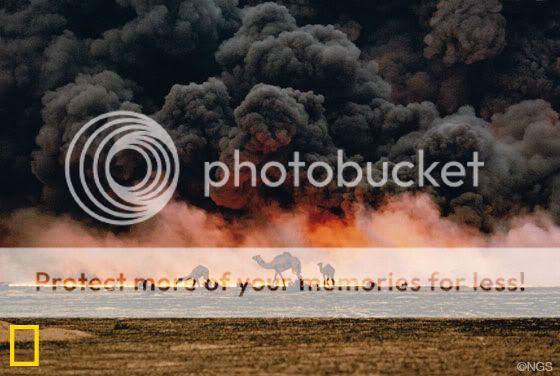
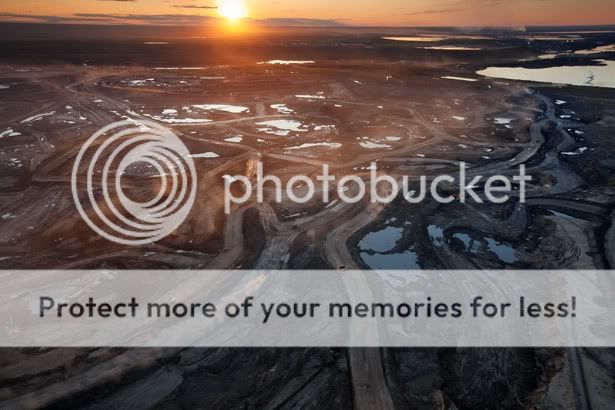


Similar threads
- Replies
- 29
- Views
- 3K
- Replies
- 0
- Views
- 539



